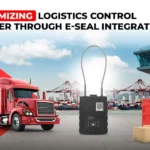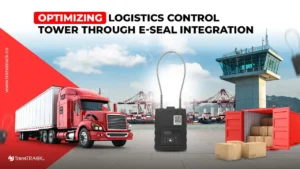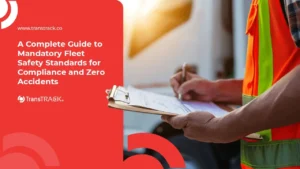Advanced Solutions for Transportation Management: Why Do You Need TransTRACK Transportation Management System?
Posted on May 2, 2025 by Nur Wachda Mihmidati
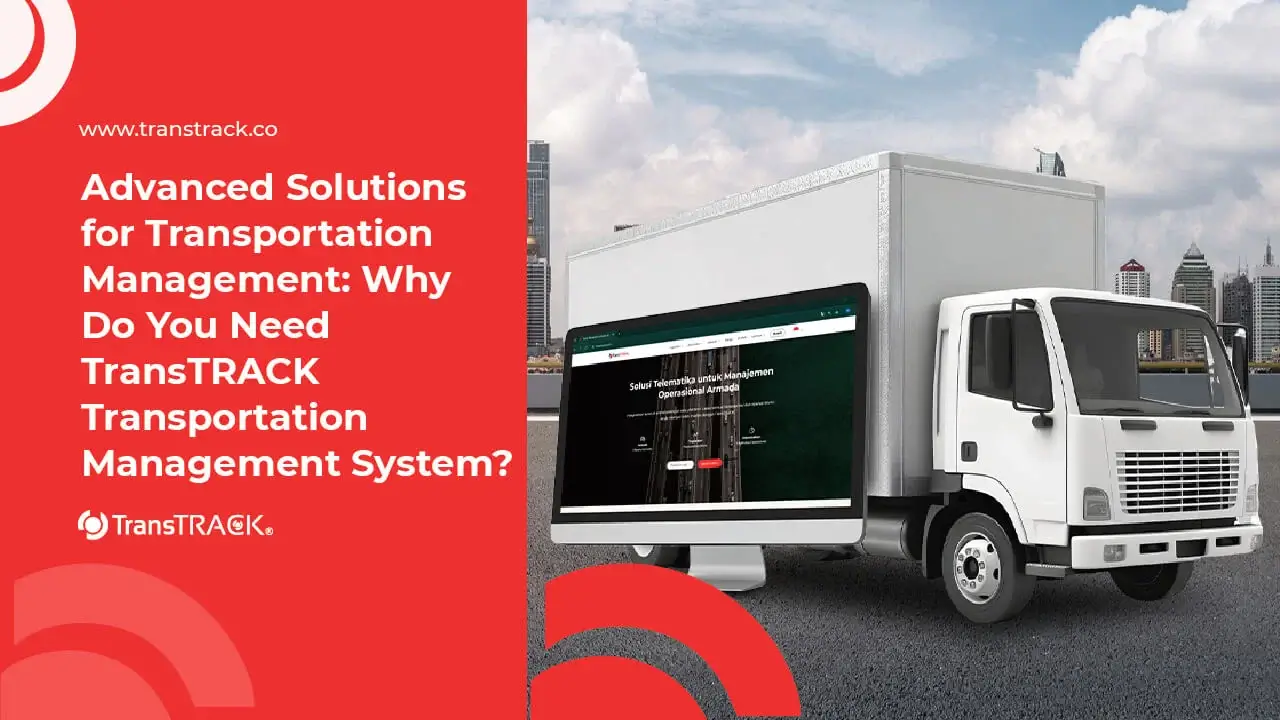
In the increasingly complex world of logistics and supply chains, transportation management plays a very important role in ensuring the smooth distribution of goods. Efficient fleet management, on-time delivery, and reduced operational costs are key to achieving competitive advantage.
However, with growing challenges, companies need technology solutions that can streamline processes and provide better visibility. This is where Transportation Management System (TMS) from TransTRACK comes in as an advanced solution that can help companies optimize their overall transportation management.
What is transportation management?
Transportation management is the process of planning, implementing, and overseeing the movement of goods, services, or people from one location to another in an efficient, safe, and cost-effective manner. It is an important part of supply chain and logistics.
What is the function of transportation management in logistics?
The functions of transportation management in logistics are vital because transportation is the main link between all processes in the supply chain. The following are its main functions:
- Efficient Goods Movement
Transportation management ensures goods are delivered from point of origin to destination with low cost, fast time, and minimal risk.
- Choosing the Right Mode of Transportation
Determine the mode of transportation (land, sea, air, or train) based on:
- Type of goods
- Shipping distance
- Cost
- Speed
- Route Planning and Optimization
Organize the best routes to save time and fuel, and avoid traffic jams or other obstacles.
- Monitoring and Tracking
Using technology (such as GPS or TMS – Transportation Management System) to monitor the position of vehicles or cargo in real-time.
- Transportation Cost Management
Helps companies control logistics budgets through:
- Negotiating freight rates
- Fuel consumption monitoring
- Vehicle utilization efficiency
- Regulatory Compliance
Ensure all shipments meet applicable regulations, including customs documents, vehicle licenses, and safety standards.
- Increasing Customer Satisfaction
With fast and secure delivery, customers are more satisfied and loyal to the company’s logistics services.
These functions if managed well will lower operational costs, increase productivity, and strengthen the competitiveness of the company in the logistics industry.
What are the components of a transportation management system?
The components of a Transportation Management System (TMS) cover various operational aspects that are integrated with each other to ensure efficiency, accuracy, and complete control over the transportation process. The following is an explanation of the main components:
1. Route Planning and Scheduling
This component helps determine the most efficient delivery routes by considering distance, travel time, and traffic conditions. In addition, the system also schedules deliveries based on priority, vehicle capacity, and fleet availability to ensure timely and coordinated operations.
2. Fleet Management
This function covers the monitoring of all operational vehicles, including usage status, technical condition, and document completeness. The system ensures that each vehicle and driver is used optimally and helps schedule vehicle rotations to ensure a longer lifespan and minimize the risk of breakdowns.
3. Delivery Monitoring and Vehicle Tracking
Through real-time GPS tracking, companies can monitor vehicle positions and verify delivery progress. This component enables identification of delays or route deviations, so that corrective actions can be taken immediately to maintain service reliability.
4. Fuel and Maintenance Cost Management
The system records the fuel consumption of each vehicle and schedules routine maintenance. With this data, companies can evaluate vehicle efficiency, reduce fuel wastage, and prevent high costs due to sudden breakdowns.
What is the Role of Transportation Management in Supply Chain
In a complex and interconnected supply chain system, transportation management plays a key role in maintaining the smooth flow of goods from producers to end consumers. Effective transportation management not only impacts operational efficiency, but also determines the speed, cost, and overall quality of service. Some of the important roles of transportation management in supporting the supply chain include:
1. Delivery Time Efficiency
Transportation management plays a role in ensuring deliveries are made on time through optimal route planning, organized scheduling, and real-time monitoring. This helps reduce delays and keep the distribution flow running smoothly, so that the supply chain process remains stable and responsive to market demand.
2. Logistics Cost Reduction
With efficient fleet management, controlled fuel usage, and load consolidation, transportation management is able to reduce operational costs. The use of an integrated transportation management system also reduces the need for manual labor and minimizes errors, resulting in a significant reduction in overall logistics costs.
3. Tracking and Transparency in Distribution
Real-time vehicle and shipment tracking systems provide full visibility into the position and status of goods. This increases transparency, allows companies and customers to monitor the progress of shipments, and speeds up decision-making in the event of obstacles in the field. This transparency also strengthens partner and consumer confidence in the company’s distribution system.
What technologies are used in transportation management?
In the increasingly complex world of transportation management, the use of modern technology is key to improving efficiency, reducing costs, and ensuring on-time delivery. Various advanced systems enable fleet management, shipment tracking, and real-time data analysis. One of the leading solutions that offers integrated technology is TransTRACK, which is designed to provide full visibility and control over the entire transportation process.
TransTRACK uses various advanced transportation management technologies such as Transportation Management System (TMS) for shipment planning and management, and Fleet Management System (FMS) for real-time fleet monitoring. The system is equipped with OBD-based vehicle telematics and sensors to collect vehicle data such as speed, fuel consumption, and engine temperature.
In addition, TransTRACK also provides driver behavior monitoring to analyze driver behavior, as well as digital checklist & e-inspection for digital vehicle checks. The real-time cargo tracking and geofencing technologies enable live tracking of shipments, while data analytics and reporting provide detailed reports for more strategic decision-making. All these technologies are integrated in one system, helping companies achieve efficiency, security and transparency in the transportation supply chain.
Tips to Improve Transportation Management Efficiency
Here are some tips to improve transportation management efficiency that can be implemented to achieve optimal results:
1. Digitize the Entire Transportation Process
Adopting technology to replace manual processes in transportation management can significantly improve efficiency. With digital systems such as Transportation Management System (TMS) and Fleet Management System (FMS), companies can plan routes, monitor shipments in real-time, and manage fleets more effectively, reducing the possibility of errors and speeding up operational processes.
2. Use of Dashboard Monitoring and Data Analytics
Utilizing a monitoring dashboard integrated with data analytics provides full visibility into all transportation activities. Information such as delivery status, fleet efficiency, and fuel management can be monitored in one easy-to-understand view, allowing managers to make quicker, more informed and data-driven decisions.
3. Transportation and Logistics HR Training
To improve efficiency, it is important to provide continuous training for human resources (HR) involved in transportation management. With good training, drivers, operators, and logistics staff will be more competent in performing their duties, from the use of technology to the safe management of vehicles and drivers, thereby minimizing errors and increasing productivity.
Implementing these three tips can help improve transportation operations, reduce costs, and increase customer satisfaction in the supply chain system.
With the rapid advancement of technology, transportation management can now be done more efficiently, safely, and transparently. Optimizing distribution processes, fleet management, as well as shipment tracking can provide a significant competitive advantage in a dynamic business world.

To that end, solutions like Transportation Management System (TMS) from TransTRACK offer integrated technology that can help your company manage transportation more effectively. By using TransTRACK, you can reduce costs, increase efficiency, and ensure on-time delivery-all in one easy-to-access platform. Contact us today to find out how TransTRACK can take your business transportation management to the next level!
Topic :
Recommended Articles
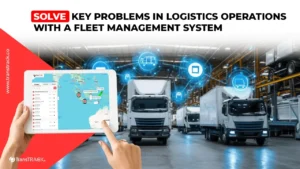
 Bahasa Indonesia
Bahasa Indonesia




